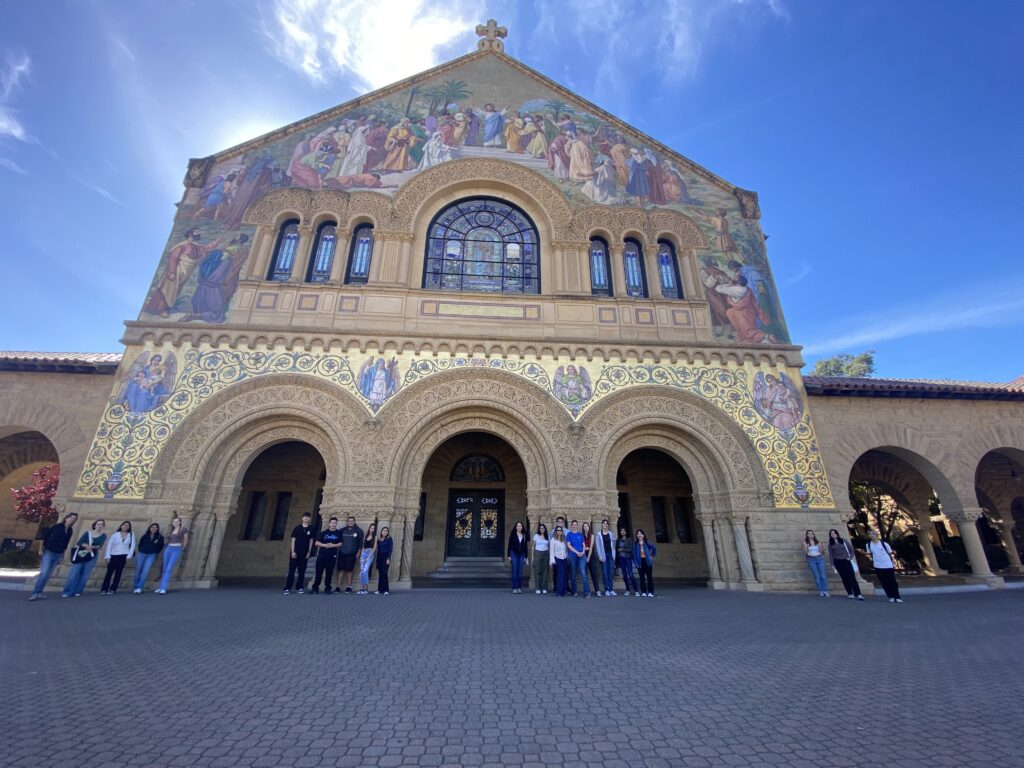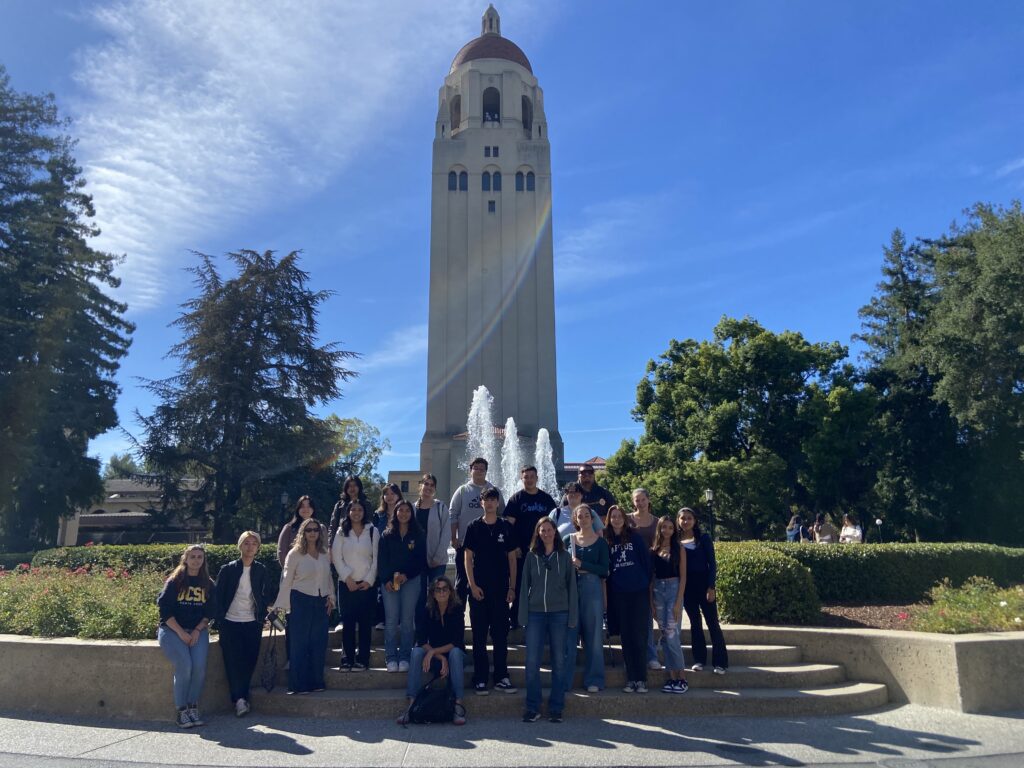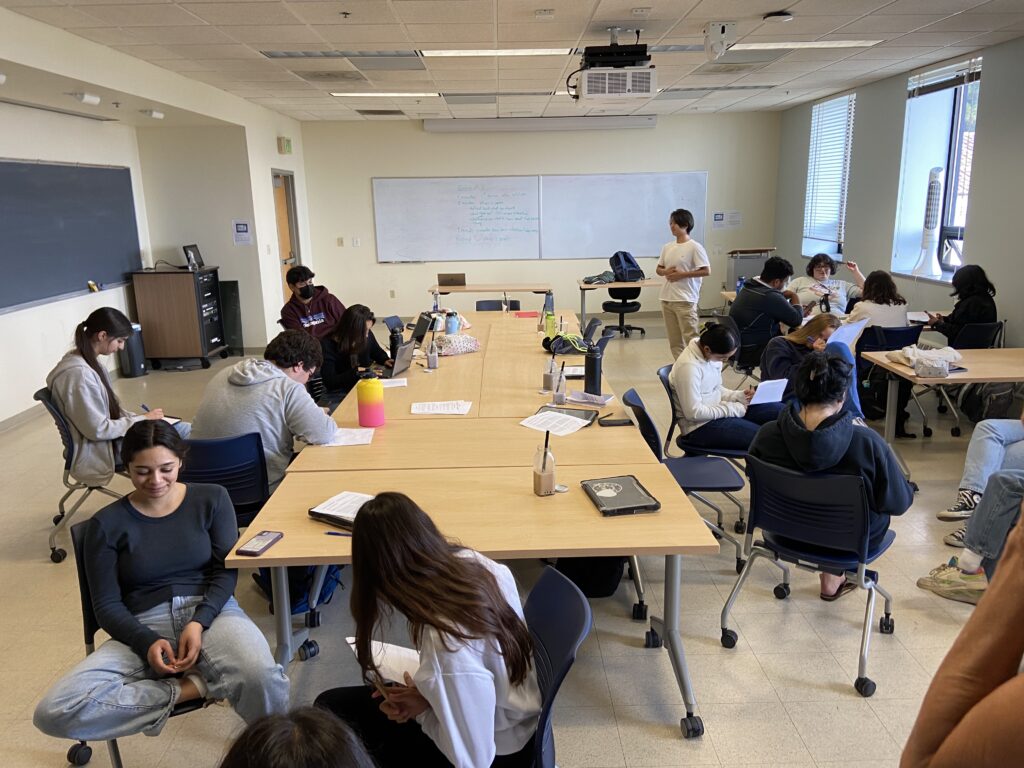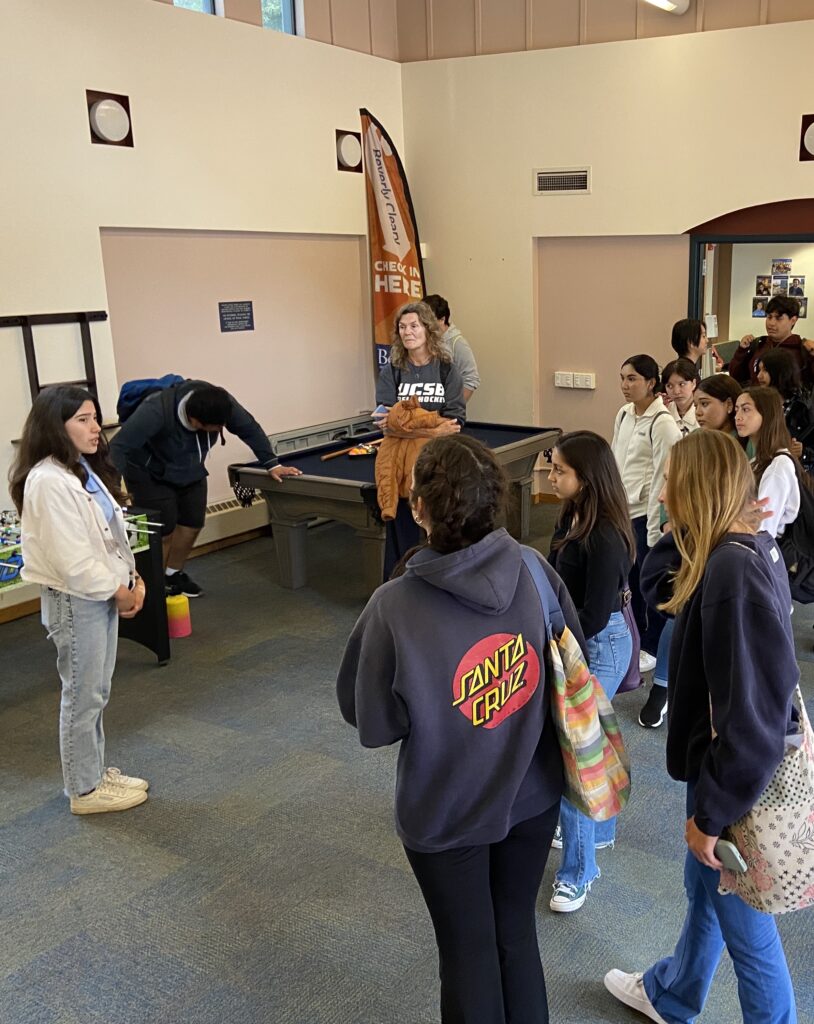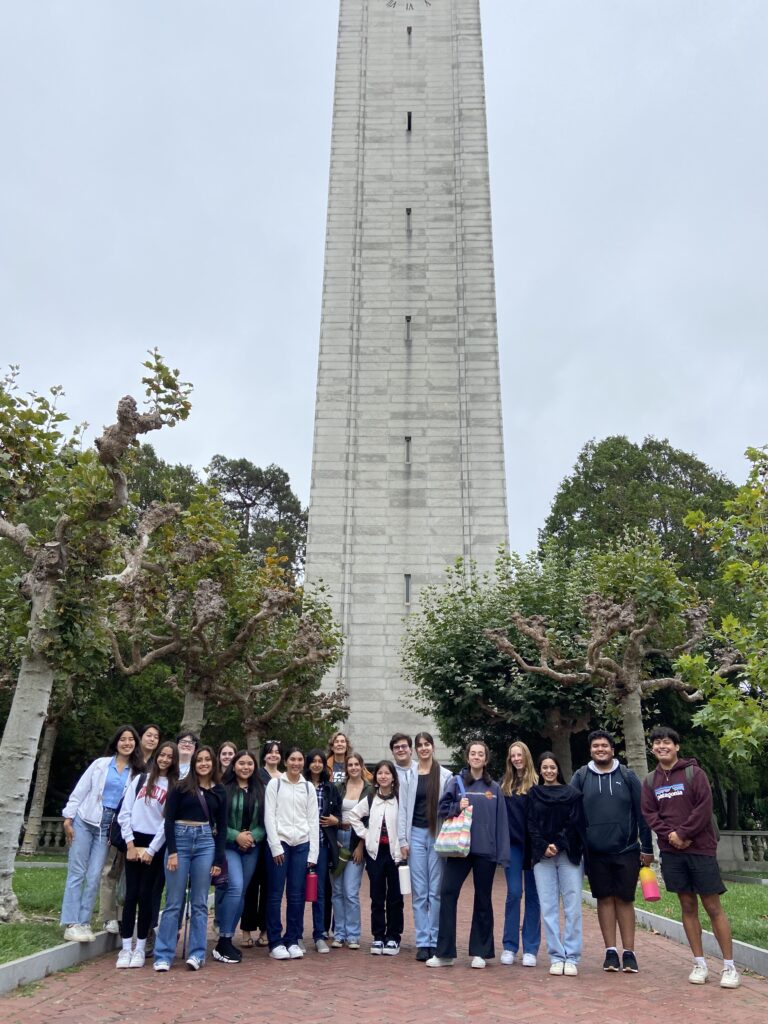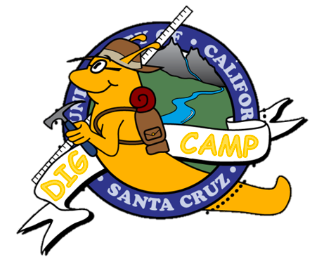The DIG CAMP model
DIG CAMP was designed to engage high school students, facilitated by trained near-peer undergraduate student mentors, in the process of collecting, evaluating, and interpreting place-based relevant data and provides college experiences focused on the geosciences, via a residential research camp and several academic year follow-up sessions.
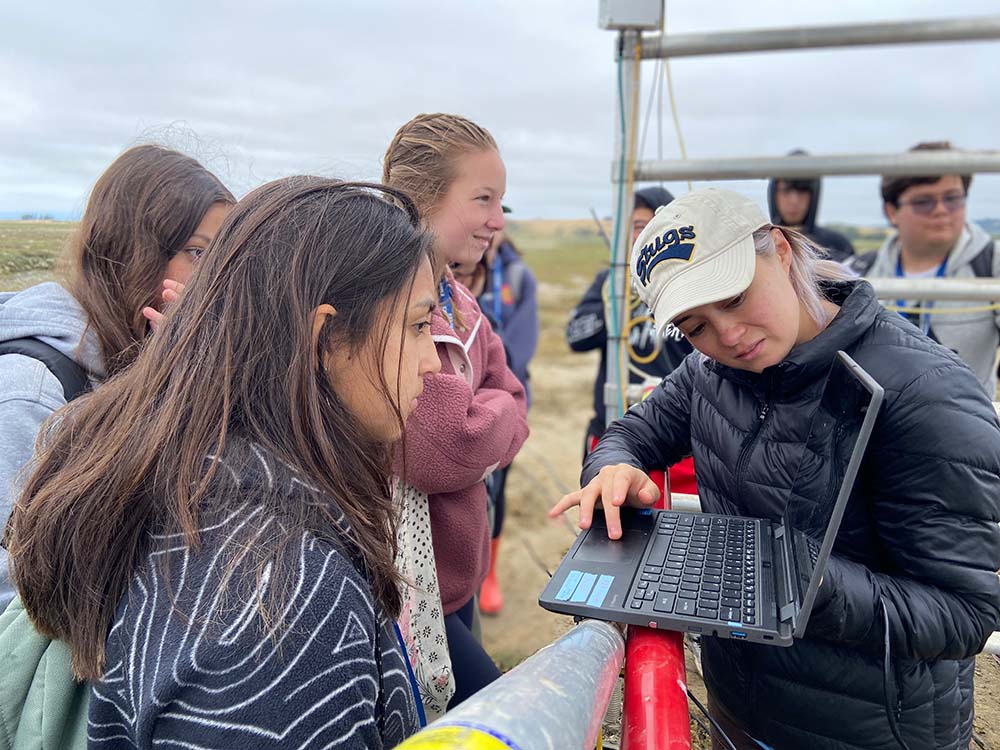
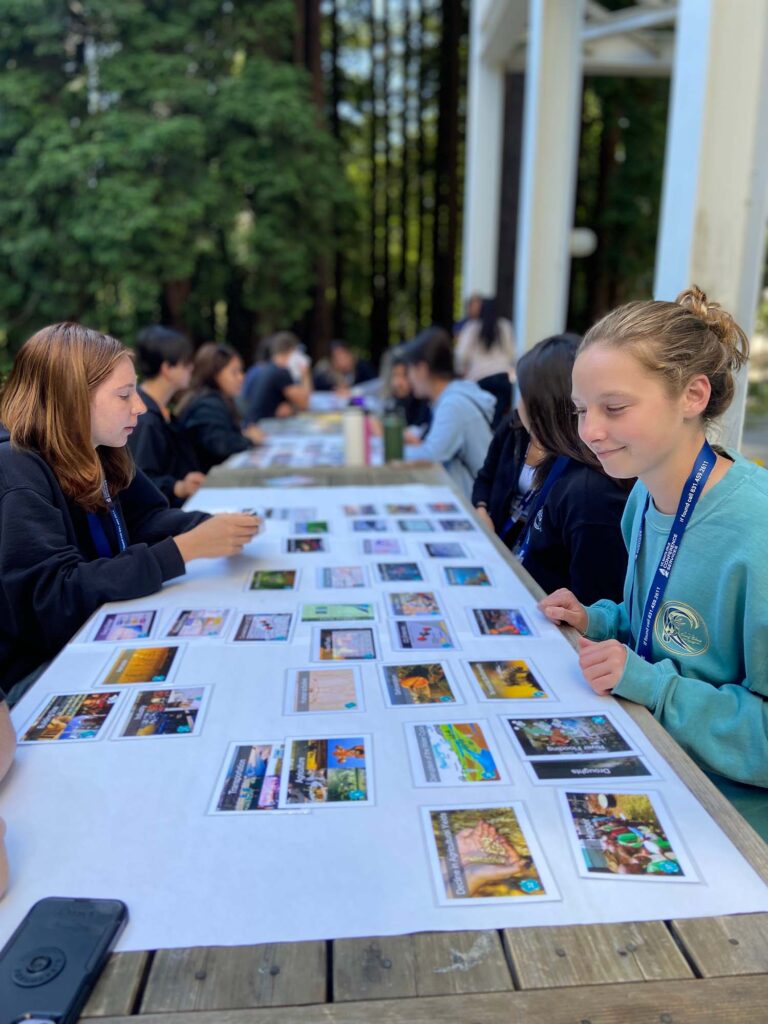
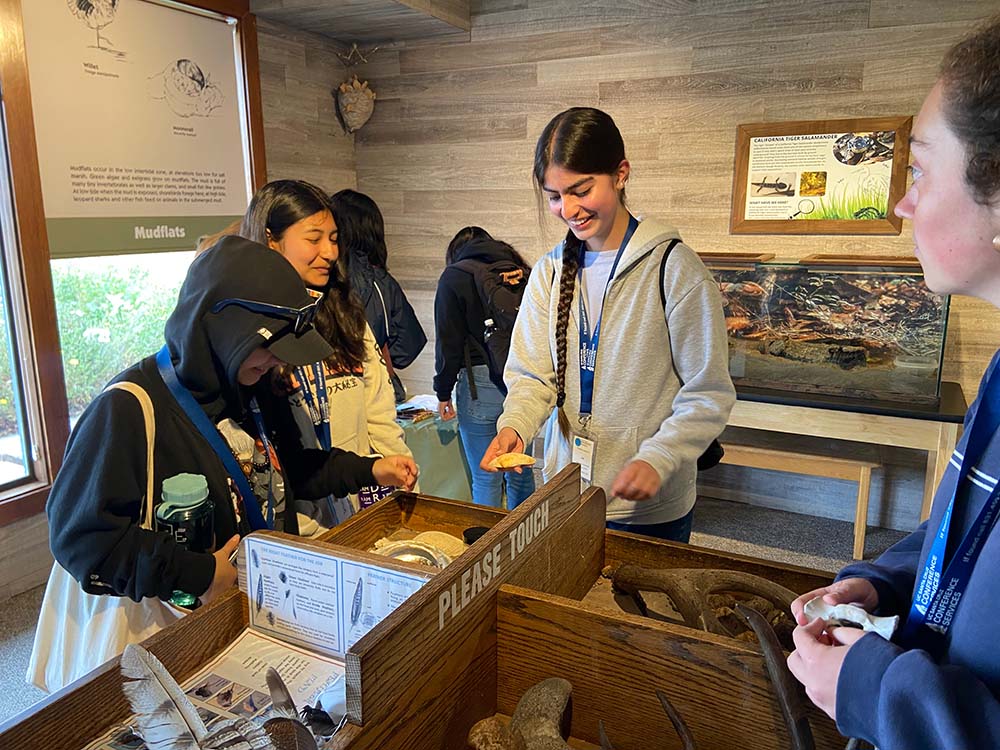
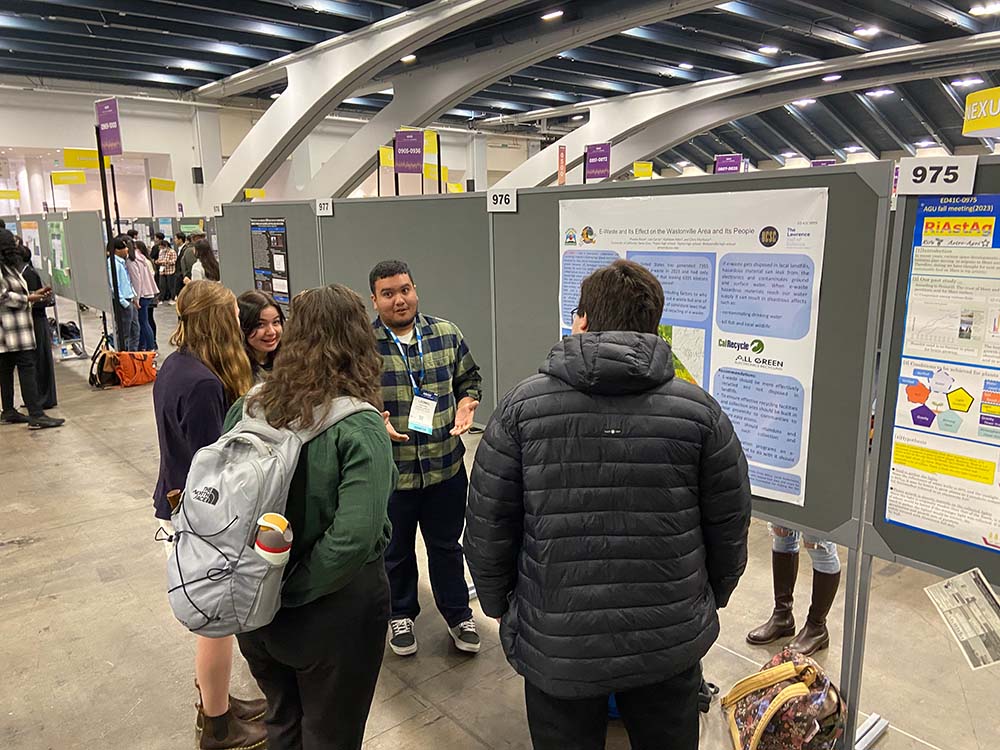
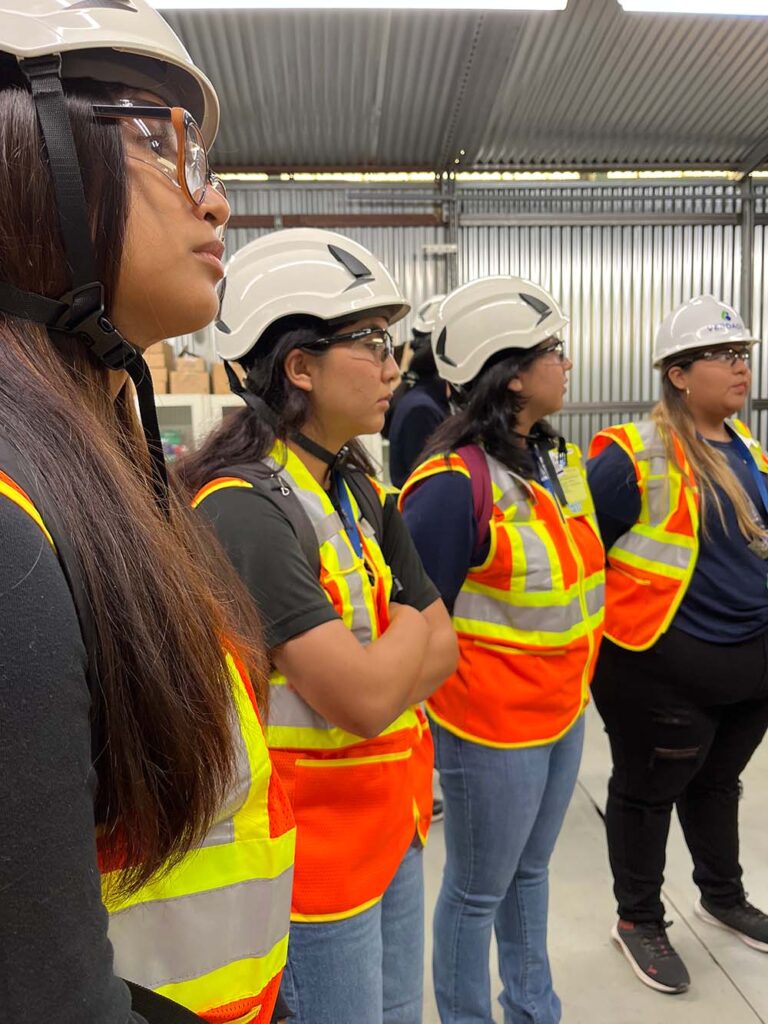

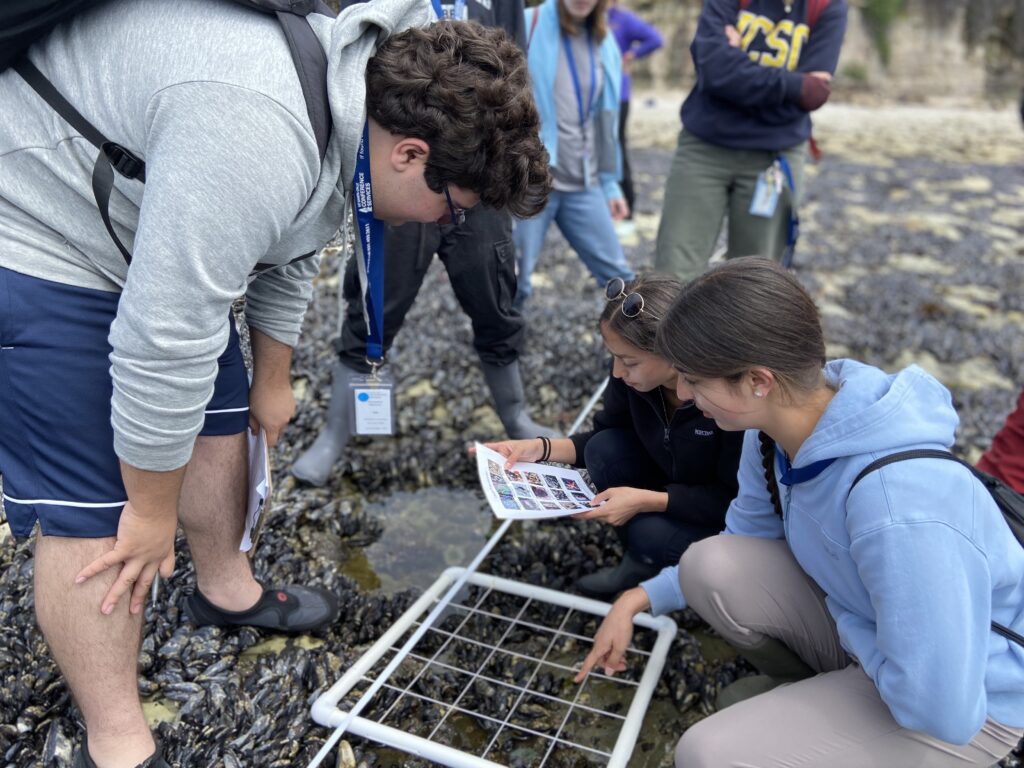
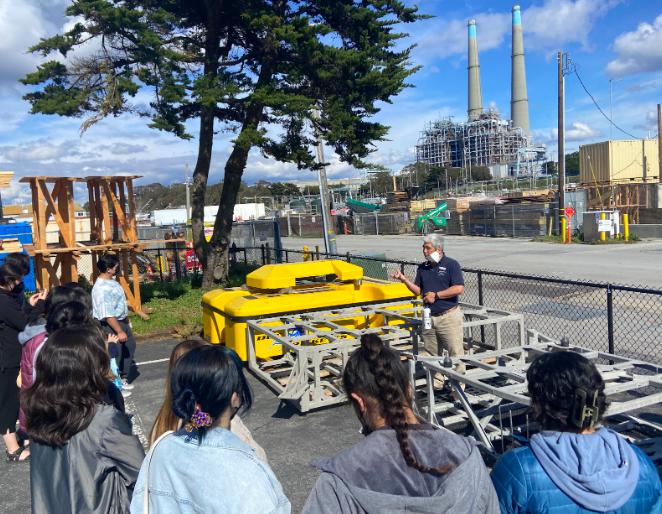
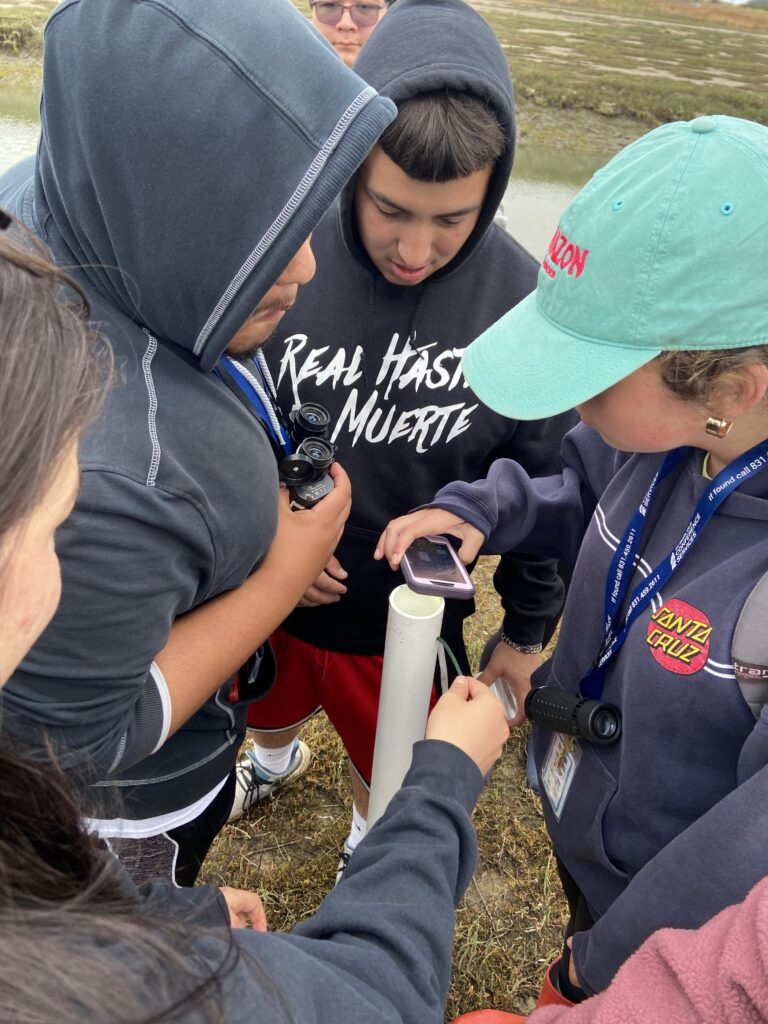
Residential research camp

High school students and undergraduate mentors live together for 10 days on campus (University of California, Santa Cruz). The undergraduate student mentors have been prepared to support the students and co-facilitate the camp in a 3-day intensive training. The high school students experience dining halls and lab tours and hear the personal college pathway experiences of their mentors.
Together the students and mentors:
- Engage in a wide range of community science partner site visits and field work.
- Hear from locally-based guest speakers.
- Select and work with pertinent data sets and data visualizations.
- Conduct data-driven geosciences research projects that are personally relevant.
- Examine a range of geosciences and applied geosciences careers and college pathways.
Days are full and peppered with downtime activities (see a sample agenda). The camp concluded with a family and community event for students to share their research project findings.
STEM pathway Follow-up days

The high school students and undergraduate mentors come together throughout the school year to focus on college and career preparation. Follow-up days were co-designed by students and staff to address each student’s college and career interests and pathways. They included college campus tours, organization tools for the college application process, and expert and ongoing advice on college pathways and STEM careers [see sample resources].
